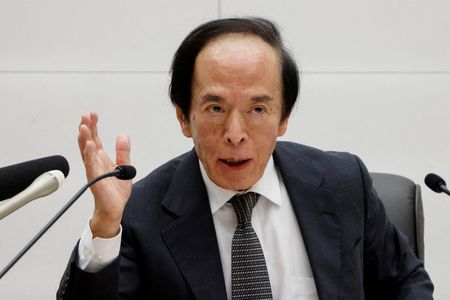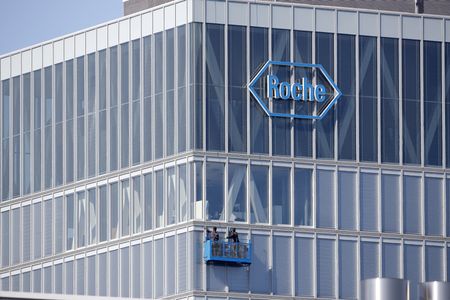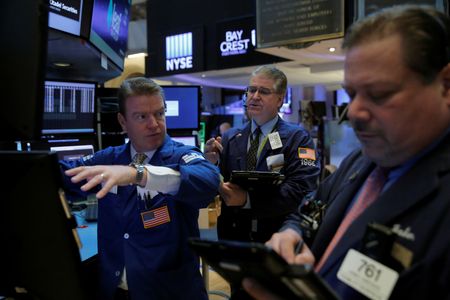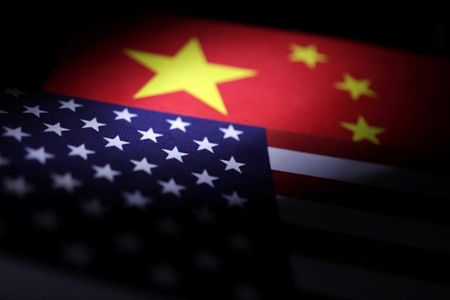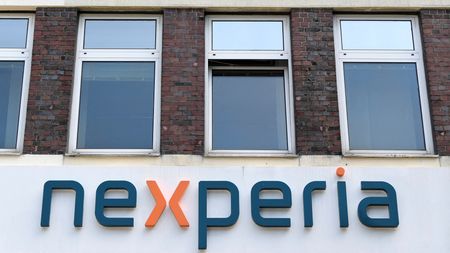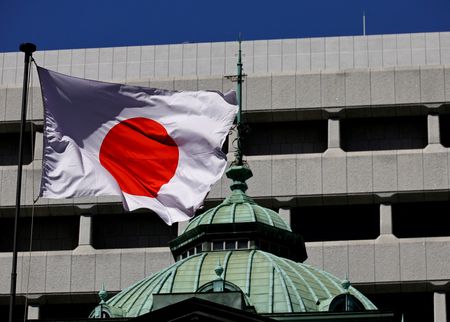By Leika Kihara
WASHINGTON (Reuters) -Bank of Japan Governor Kazuo Ueda said on Thursday the central bank will scrutinise various data, including information he collects during his stay in Washington, in deciding whether to raise interest rates in October.
He repeated his view that the central bank will hike rates if the likelihood of its growth and price forecasts materializing increases.
Global and U.S. economies are showing resilience, though the impact of U.S. tariffs will likely emerge ahead, Ueda told a news conference after attending the G7 and G20 finance leaders’ gatherings in Washington.
“There’s not much of a gap in how I see global and U.S. economies now and how I saw it back in Japan,” he said.
The International Monetary Fund edged up its 2025 global growth forecast on Tuesday as tariff shocks have proven more benign than expected, but warned that a renewed escalation in U.S.-China trade tensions could slow output significantly.
In a speech earlier this month, Ueda said the global and U.S. economic outlook, as well as the fallout from U.S. tariffs on Japan’s economy, will be key factors the BOJ will look at in deciding how soon to raise interest rates.
“There’s still some meetings left in Washington,” said Ueda, who is scheduled to attend Friday’s meeting of the IMF’s steering committee.
“I would like to keep gathering more information and scrutinise various data that comes out leading up to our October policy meeting,” he said, when asked about the chance of a rate hike at the upcoming October 29-30 policy meeting.
The BOJ ended a massive, decade-long stimulus programme last year and raised rates to 0.5% in January, on the view that Japan was on the cusp of durably hitting its inflation target.
With inflation exceeding its 2% target for well over three years, the central bank has signaled its readiness to keep raising rates if the economy continues to improve.
Highlighting the BOJ’s growing attention to inflationary pressure, two of its nine board members proposed unsuccessfully to raise rates in September, which heightened market bets of a rate hike in October.
But such expectations faded after the victory of Sanae Takaichi, an advocate of expansionary fiscal and monetary policy, in a ruling party leadership race that paved the way for her to become Japan’s first female prime minister.
Most analysts expect the BOJ to raise rates to 0.75% by January next year, though they are split on the exact timing.
(Reporting by Leika Kihara; Editing by Paul Simao and Andrea Ricci)

